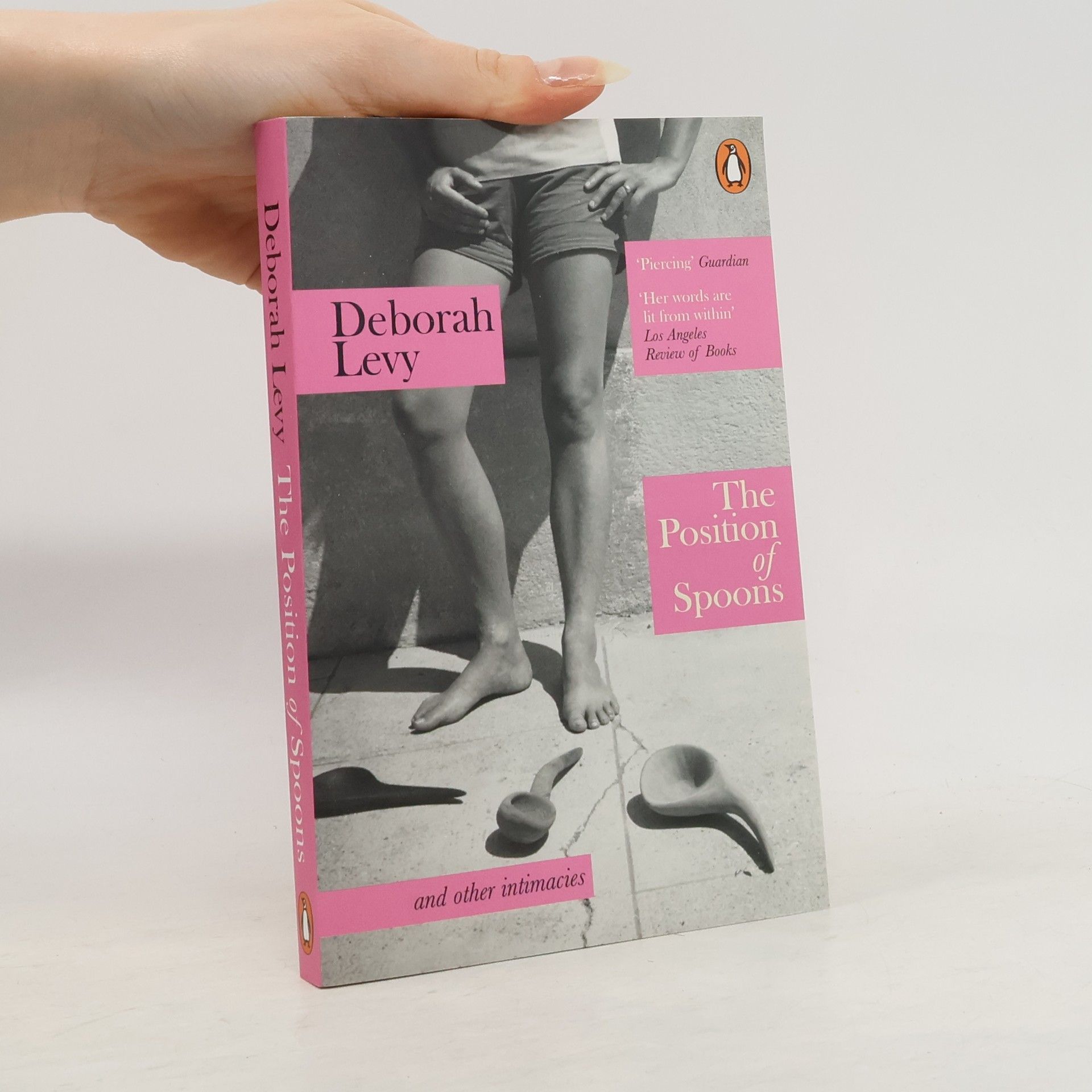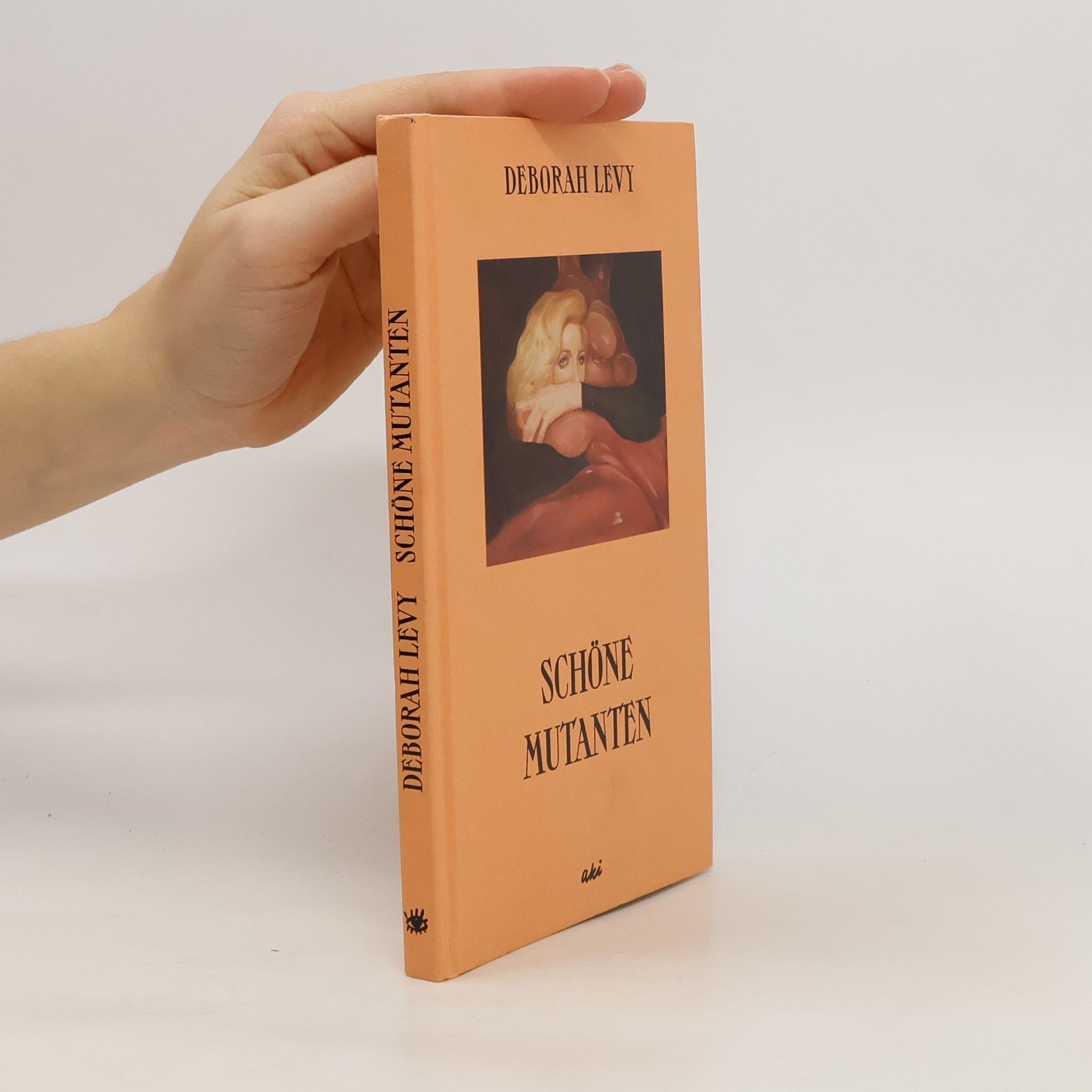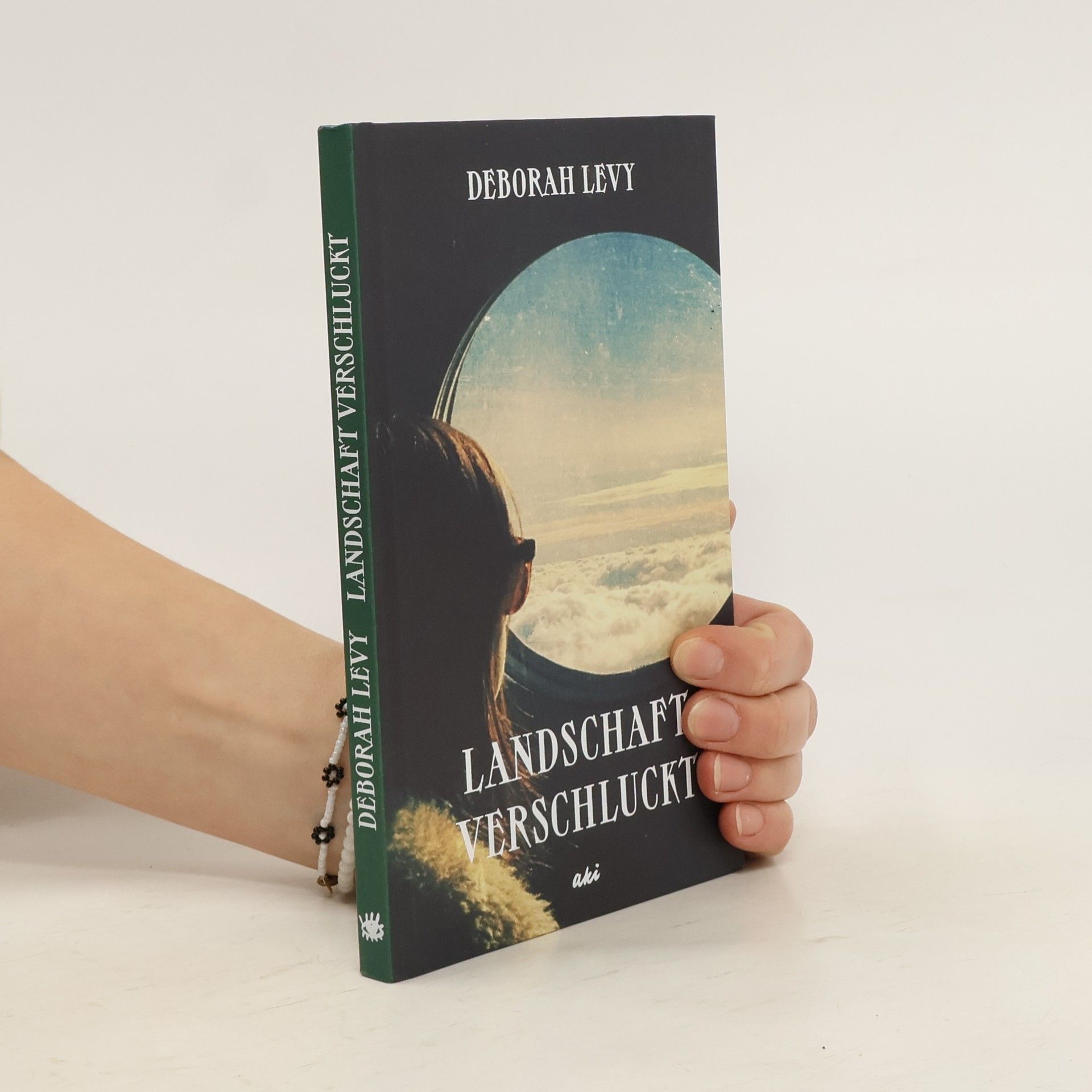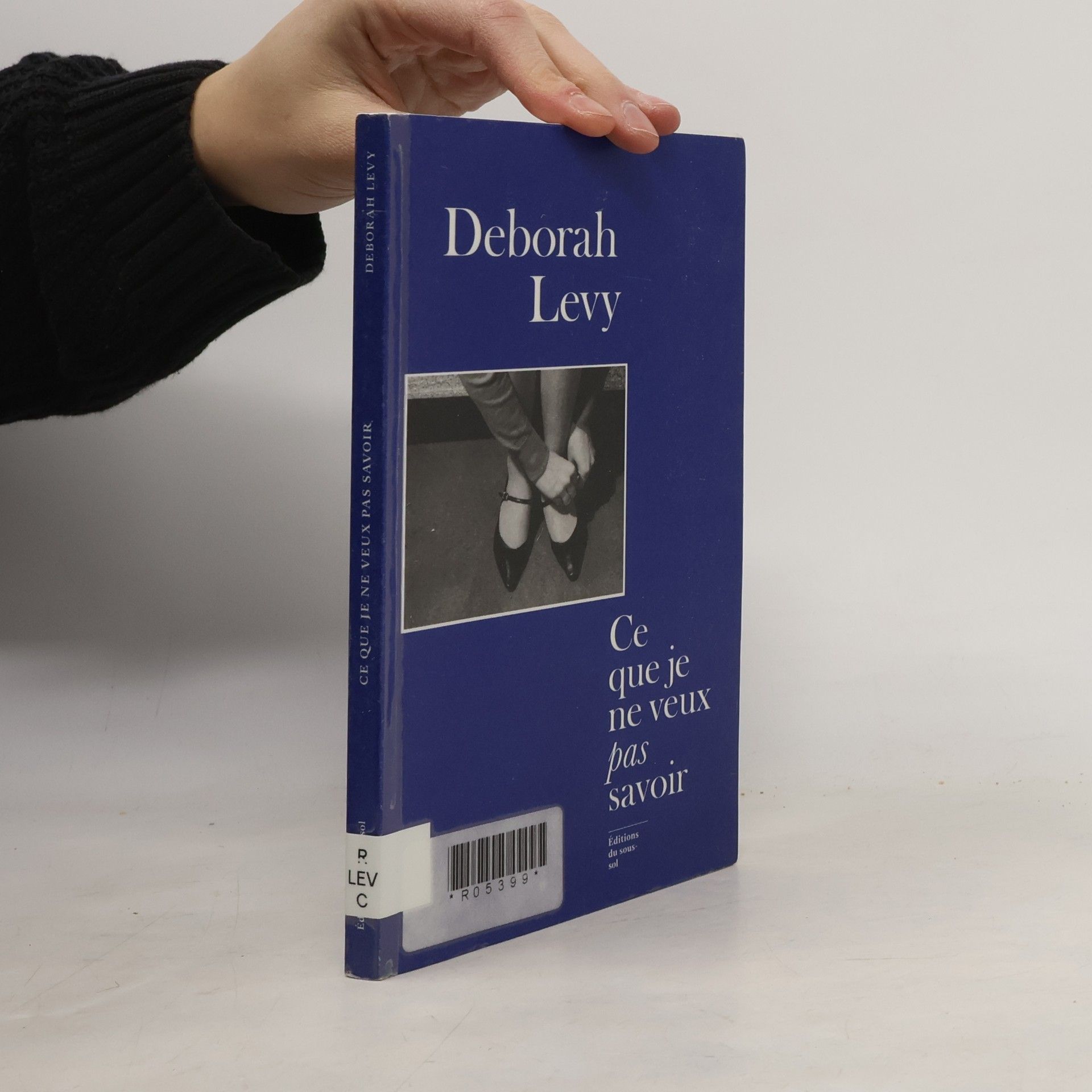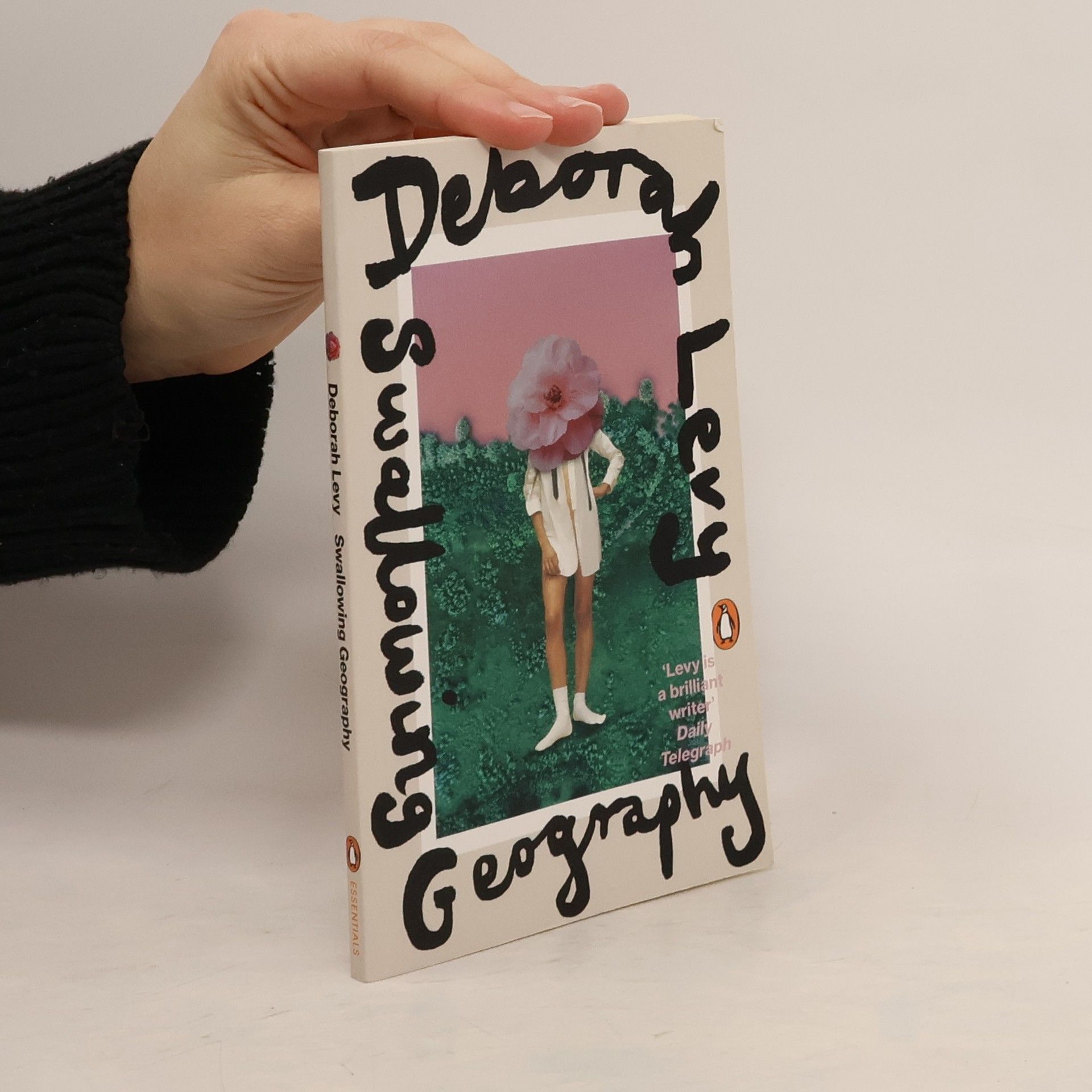In The Position of Spoons, Deborah Levy invites the reader into the interiors of her world, sharing her most intimate thoughts and experiences, as she traces and measures her life against the backdrop of the literary and artistic muses that have shaped her. From Marguerite Duras to Colette and Ballard, and from Lee Miller to Francesca Woodman and Paula Rego, we can relish here the richness of their work and, in turn the richness of the author's own. Each page is a beautiful, tender composition of the questioning self- a portrait of Deborah Levy's writing life and intellectual vitality in all of its dimensions.
Deborah Levy Book order (chronological)
Deborah Levy is an author of remarkable literary breadth, who began her career crafting plays acclaimed for their intellectual rigor and poetic fantasy. Discovering the exhilarating freedom of novel writing after her theatrical success, she has cultivated a distinctive voice that explores complex psychological landscapes. Her work often delves into themes of identity and the search for meaning, demonstrating a fearless approach to both form and content. Levy offers readers a provocative and unforgettable literary experience.


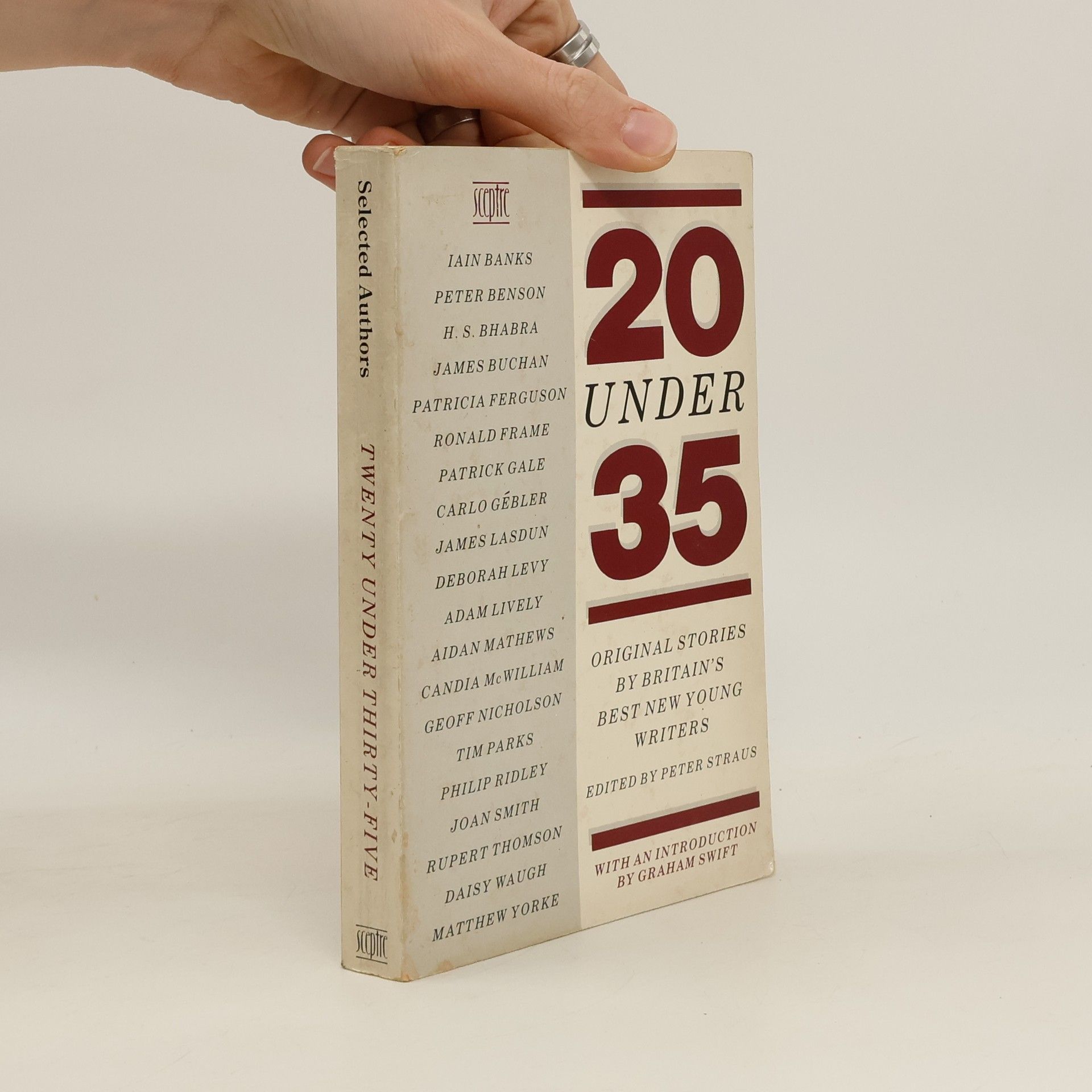
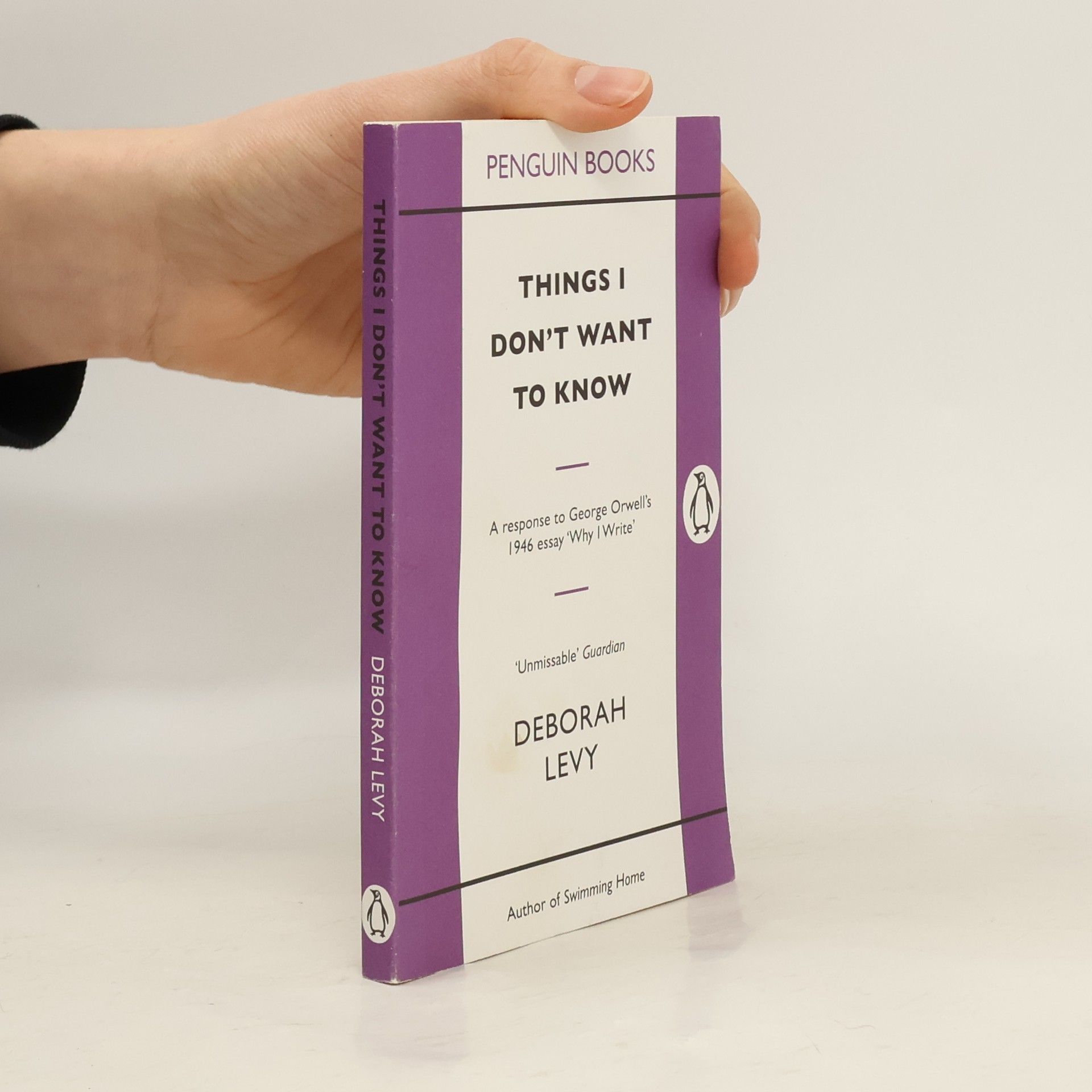

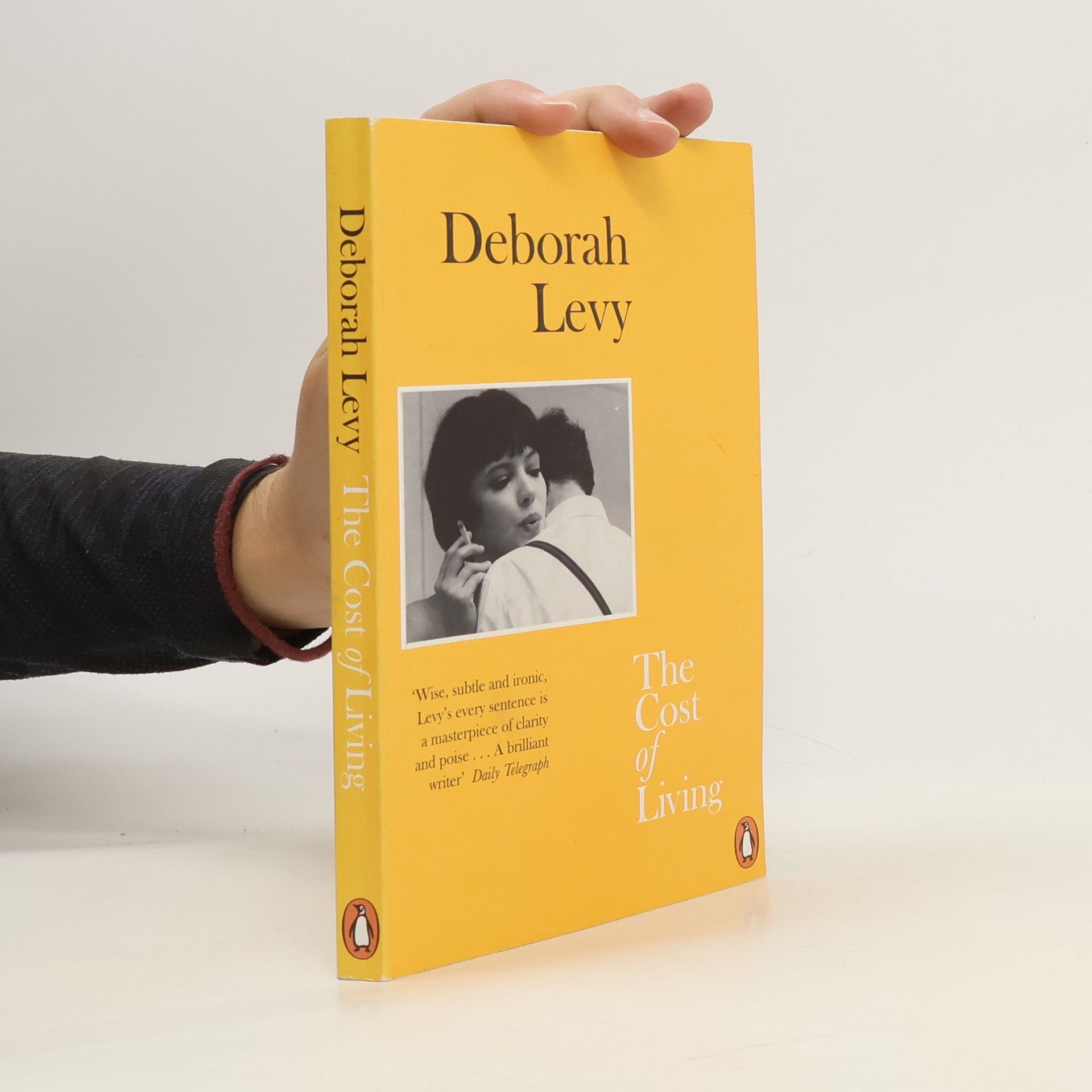

Billy & Girl
- 192 pages
- 7 hours of reading
In this brilliant, inventive, tragic farce, Deborah Levy creates the ultimate dysfunctional kids, Billy and his sister Girl. Apparently abandoned years ago by their parents, they now live alone somewhere in England. Girl spends much of her time trying to find their mother, going to strangers' doors and addressing whatever Prozac woman who answers as "Mom." Billy spends his time fantasizing a future in which he will be famous, perhaps in the United States as a movie star, or as a psychiatrist, or as a doctor to blondes with breast enlargements, or as the author of "Billy England's Book of Pain." Together they both support and torture each other, barely able to remember their pasts but intent on forging a future that will bring them happiness and reunite them with the ever-elusive Mom. Billy and Girl are every boy and girl reeling from the pain of their childhoods, forgetting what they need to forget, inventing worlds they think will be better, but usually just prolonging nightmares as they begin to create--or so it seems--alternative personalities that will allow them to survive and conquer and punish. In the end, the reader is as bewildered as Billy and Girl--have they found Mom and a semblance of family, or are, they completely out of control and ready to explode?
In der Essaysammlung Die Position der Löffel leiht uns Deborah Levy ihren Blick. Sie betrachtet ihre Lesebiographie, die Autor*innen, die sie prägten;Colette, Marguerite Duras, Elizabeth Hardwick, Simone de Beauvoir. Mal setzt sie Sigmund Freuds Brille auf und durchschaut die Neurosen der Gäste eines Wiener Kaffeehauses;Hysterie, ödipale Mutterliebe, Schwindel, Sachertorte. Sie betrachtet Künstler*innen und Kunstwerke;Meret Oppenheim, Lee Miller, Francesca Woodman. Sie schreibt ein Alphabet für die innere Stimme und eins für den Todestrieb, pflückt böse Blumen in Baudelaires’ Garten und folgt dem weißen Kaninchen durch einen Tunnel von Woolwich nach Anderswo. »Ist Anderswo zwischen deinen Ohren?« Poetisch, klug, manchmal surreal und immer mit einem untrüglichen, liebevollen Blick fürs Detail. Was, wenn es eine Rolle spielt, ob der Löffel zum gekochten Ei zeigt oder davon weg? Was verraten Socken und Schuhe über ihre Träger*innen? Was, wenn es wichtig ist, wem und was wir unsere Aufmerksamkeit schenken? Die Position der Löffel ist gleichzeitig Kurzgeschichtensammlung, kritische Theorie, Poetik und persönliche Bibliotheksführung. Levy-Lesende werden überall Bekanntes aufblitzen sehen, für Noch-nicht-Levy-Lesende gibt es einen neuen Kosmos zu entdecken.
An Amorous Discourse in the Suburbs of Hell
- 100 pages
- 4 hours of reading
"She is a shimmering, melancholy angel, flown from Paradise to save him from the suburbs of hell. He an accountant, dreaming of a white Christmas, a little garden and someone to love. A storm of romance and slapstick, of heavenly and earthly delights, in this dystopian philosophical poem about individual freedom and the search for the good life."--Back cover
The mesmerising new novel from the twice Booker-shortlisted author of Hot Milk and Swimming Home At the height of her career, concert pianist Elsa M. Anderson - former child prodigy, now in her thirties - walks off the stage in Vienna, mid-performance. Now she is in Athens, watching as another young woman, a stranger but uncannily familiar - almost her double - purchases a pair of mechanical dancing horses at a flea market. Elsa wants the horses too, but there are no more for sale. She drifts to the ferry port, on the run from her talent and her history. So begins a journey across Europe, shadowed by the elusive woman who bought the dancing horses. A dazzling portrait of melancholy and metamorphosis, August Blue uncovers the ways in which we seek to lose an old story, find ourselves in others and create ourselves anew. 'A writer at the peak of her talents' Lisa Appignanesi 'There's no one touching the brilliance of Deborah Levy's prose today' Lee Rourke 'Levy's strength is her originality of thought and expression' Jeanette Winterson
Deborah Levys kühnes Debüt erzählt von Außenseiter*innen, die rastlos und rasterlos leben und eben dadurch miteinander verbunden sind. In kurzen Passagen blickt Levy durch die Augen der schönen Mutanten auf die Welt. Sie erzählt von der russischen Exilantin Lapinski, ihrerseits eine Sammlerin von Geschichten, von der Poetin, die am Fließband tiefgefrorene Hamburger formt, vom Nachbarn, der Lapinski eine »schamlose Cunt« nennt, von der anorektischen Anarchistin und der pyromanischen Bankerin, die einst Gemma war, und von einem Lama. In Schöne Mutanten offenbart Deborah Levy eine Welt, deren Figuren aufbrechen und sich neu zusammen setzen, sich gegenseitig und ihre Leser*innen abstoßen und anziehen. Roh und bezaubernd und schön und vulgär. Eine provokative Prosa, die die Kerben, die Europa durchziehen, beschreibt und in den Bruchstellen Sonnenblumen pflanzt. Levy schreibt mit Scharfsinn und Witz und zieht das Groteske dem Naturalistischen stets vor. Vielleicht zeigt sich erst aus der Distanz die wahre Absurdität unserer Welt, in der zu leben offenbar bedeutet, Geld auszugeben.
Landschaft verschluckt
- 128 pages
- 5 hours of reading
»Es gefällt dir, dass ich einfach nur J.K. genannt werde«, sagt sie zu ihrem Kompagnon, der von ihrer Ungebundenheit, ihrem Freiheitsdrang weiß. »Du trägst sogar im Bett Schuhe, damit du vor mir wegrennen kannst.« Bleibt man für den anderen immer fremd, ganz gleich, wie nah man sich kommt? In diesem frühen Roman von Deborah Levy ist eine junge Frau wie ihr »Namensvetter« Jack Kerouac on the road – in einer sich immer schneller drehenden, zunehmend fragmentierten Welt. »J.K. ist die Streunerin, die Pennerin, die Emigrantin, die Geflüchtete, die Deportierte, die Spaziergängerin, die umherziehende Spielerin. Manchmal wäre sie gern eine Siedlerin, aber Neugier, Trauer und Entfremdung verhindern das.« J.K. will mit leichtem Gepäck unterwegs sein, aber die Last ihrer Herkunft, der Erinnerungen wiegt schwer. Und wohin geht eigentlich diese Reise?
Three bicycles. Seven ghosts. A crumbling apartment block on the hill. Fame. Tenderness. The statue of Peter Pan. Silk. Melancholy. The banana tree. A Pandemic. A love story. From a leading thinker and writer, this final installment in a critically acclaimed series offers an exhilarating and intimate meditation on home and the spectres that haunt it. Following the success of the previous volume, this work explores what women, both seen and unseen, possess at the end of their lives—both tangible property and intangible values often overlooked by society. It questions ownership and the impact of patriarchy on identity. Real estate becomes a complex metaphor for the lives women navigate, as they buy, sell, and inherit while also confronting what must be discarded. Levy's prose is wise, subtle, and ironic, with each sentence reflecting clarity and poise. Critics have praised her work as extraordinary and beautiful, filled with wit and sharp insights. This book promises to resonate deeply with readers, inviting them to reflect on the intricate relationship between identity, ownership, and the legacies we leave behind.
Ce que je ne veux pas savoir - Prix Femina étranger 2020
- 144 pages
- 6 hours of reading
Deborah Levy revient sur sa vie. Elle fuit à Majorque pour réfléchir et se retrouver, et pense à l'Afrique du Sud, ce pays qu'elle a quitté, à son enfance, à l'apartheid, à son père – militant de l'ANC emprisonné –, aux oiseaux en cage, et à l'Angleterre, son pays d'adoption. À cette adolescente qu'elle fut, griffonnant son exil sur des serviettes en papier. Telle la marquise Cabrera se délectant du "chocolat magique', elle est devenue écrivaine en lisant Marguerite Duras et Virginia Woolf. En flirtant, sensuelle, avec les mots, qui nous conduisent parfois dans des lieux qu'on ne veut pas revoir. Ce dessin toujours inédit que forme le chemin d'une existence. Ce que je ne veux pas savoir est une œuvre littéraire d'une clarté éblouissante et d'un profond secours. Avec esprit et calme, Deborah Levy revient sur ce territoire qu'il faut conquérir pour écrire. Un livre talisman sur la féminité, la dépression, et la littérature comme une opération à cœur ouvert.
Penguin Essentials - 106: Swallowing Geography
- 96 pages
- 4 hours of reading
Like her namesake Jack Kerouac, J.K. is always on the road, travelling Europe with her typewriter in a pillowcase. From J.K.'s irreverent, ironic perspective, Levy charts a new, dizzying, end-of-the-century world of shifting boundaries and displaced peoples.
